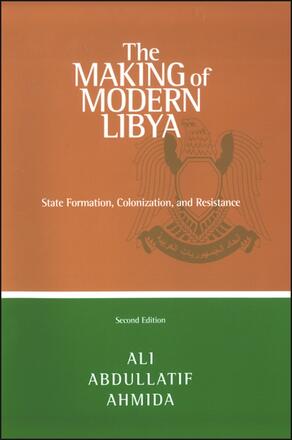
The Making of Modern Libya
State Formation, Colonization, and Resistance, Second Edition
Alternative formats available from:
Second edition of the provocative study analyzing the social, cultural, and historical roots of modern Libya.
Description
The Making of Modern Libya is a thorough examination of the social, cultural, and historical background of modern Libya. Ali Abdullatif Ahmida examines the reaction of the ordinary Libyan people to colonialism and nationalism, from the early nineteenth century through the end of anticolonial resistance, to the rise of the modern Libyan state in 1951. Weaving together insights drawn from Arabic, French, English, and Italian sources, he challenges Eurocentric theories of social change that ignore the internal dynamics of native social history. Among other things, he shows that Sufi Islam, tribal military organization, and oral traditions were crucial in the fight against colonialism. The political and cultural legacy of the resistance has been powerful, strengthening Libyan nationalism and leading to the revival of strong attachments to Islam. The memory of this period has not yet faded, and appreciation of this background is essential to understanding modern Libya. This new edition also investigates Libya's postcolonial nationalist policies, bringing the argument up to the present.
Ali Abdullatif Ahmida is Professor of Political Science at the University of New England. He is the author of Forgotten Voices: Power and Agency in Colonial and Postcolonial Libya and the editor of Beyond Colonialism and Nationalism in the Maghrib: History, Culture, and Politics.